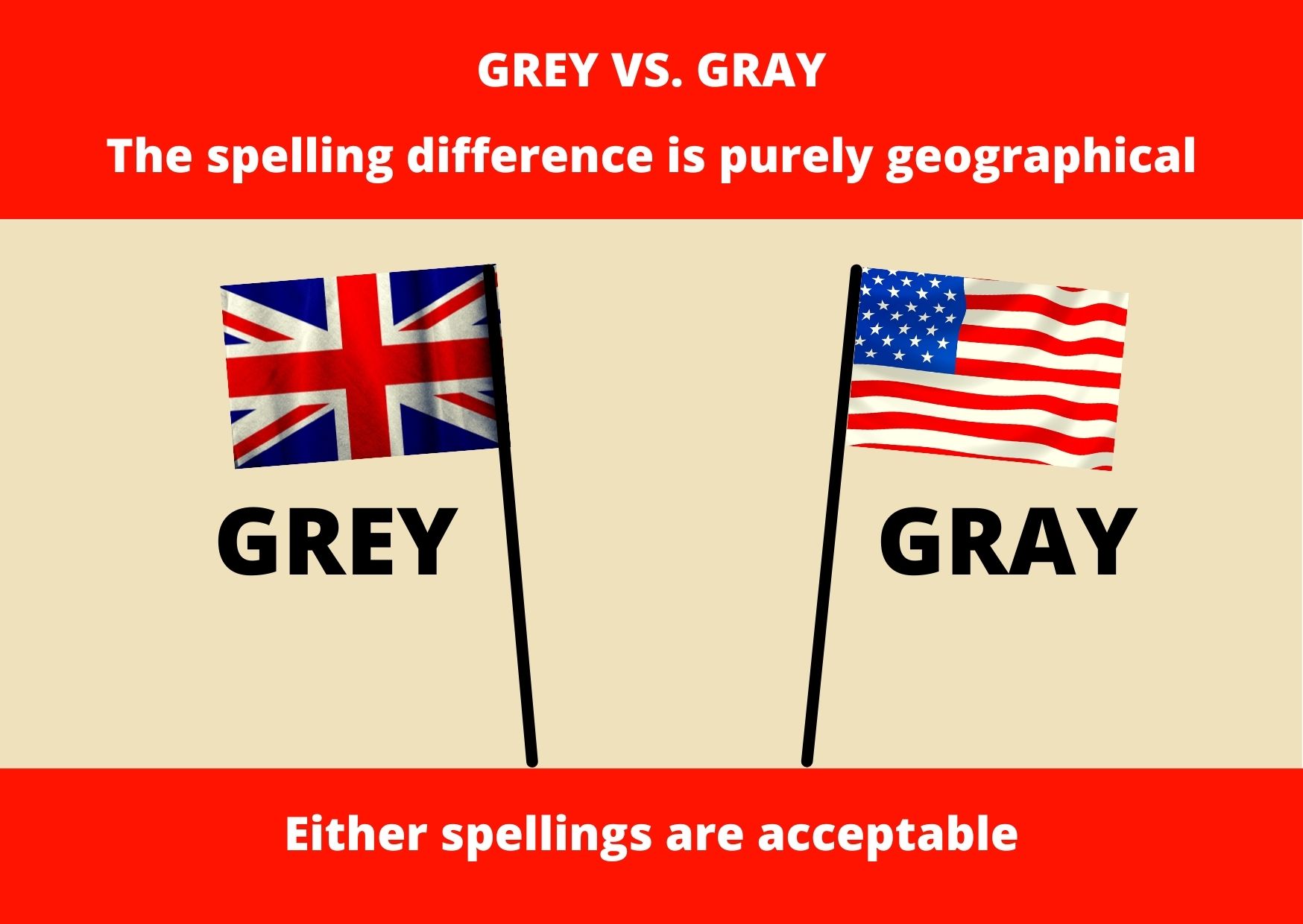As a noun, gray is usually in reference to the color. It can also be used as an adjective when we want to say that the color of something is simply a shade of gray. It can be used as a verb as well, for when something grays (i.e., turns gray, such as hair). But regardless of its use, you will sometimes find that gray is not spelled the way that you might think it should be. Or, you might be reading this thinking, “these people really don’t know how to spell—it’s grey.” So, what’s behind the grey/gray confusion, and is there any difference between them, besides the obvious difference in spelling?
Gray and grey are simply two different spellings of the same word. Gray is more frequently used in the U.S., while grey is more widely used in other English-speaking countries. In proper names—like Earl Grey tea, named after Charles Grey, the 2nd Earl of Grey, and the unit Gray, used to measure radiation and named after Louis Harold Gray, among others—the spelling remains the same, and they need to be learned.
Gray versus. Grey—Where Does the Difference Come From?
Does your vowel choice really make any difference in the case of the color gray? No, it doesn’t.
Here is a tip: The spelling doesn’t affect the definitions, and both spellings are totally fine. However, be sure to use the form that is appropriate for your geography.

The pronunciation stays the same regardless of the spelling that you’re using. In fact, both spellings have the same origin.
Gray and grey both come from the Old English word grǽg. Over the course of time, many individual spellings of the word developed. The English poem “The Owl and the Nightingale,” which was written in the twelfth or thirteenth century, uses the spelling “greie.” The translation of the French poem “Roman de la Rose” (fourteenth-century) uses the spelling “greye.” The spelling “Graye” can be found in the poem “Piers Plowman” written by William Langland in the last half of the fourteenth century. Examples of the spellings that are in use today can also be found in Middle English literature.
In the eighteenth century, “grey” had become the more common spelling, even though the legendary poet, playwright, essayist, moralist, critic, biographer, editor Samuel Johnson thought that “gray” was the better version. In the nineteenth century, English dictionaries followed Johnson’s lead and suggested “gray” as the correct version, but to no avail. By the twentieth century, “grey” had become the accepted spelling everywhere except in the United States.
Here’s another tip: Gray is most common in the United States, while grey is most common in the rest of the English-speaking world.
You can write:
The thing that I disliked the most about the time I spent in London was the gray sky.
But, you can also write:
The thing that I disliked the most about the time I spent in London was the grey sky.
We will use gray/grey as a verb when we want to say that something is becoming gray or grey. Because gray or grey hair is usually associated with growing old, we sometimes mention it as a way to show that someone is aging:
Mary’s hair started to gray/grey long before her 60s.
It doesn’t matter if you’re using the word “gray” as a noun, verb, or adjective. You can say that a person’s hair has grayed over a couple of years, but you can also say that it has greyed. Some things can be greyish, but they can be grayish as well.
Grey and Gray—Are They Always Interchangeable?
In ordinary usage, there is no difference between the words grey and gray. Some people believe each spelling refers to a different shade of gray but it is very possible you will see this in practice when looking at color samples.
There are a couple of cases, however, where you really should mind the vowels. One of those cases is when talking about the breed of dog by the name of greyhound. It is always spelled with an e, not an a. It’s the other way around for the grayling, a species of fish with a name that’s always spelled with an a.
If Grey is someone’s last name, you obviously shouldn’t change it to Gray to match the way you think it should be spelled. Proper nouns are off limits—the vowels in them cannot be changed. And neither can the vowel in Gray, the unit for food irradiation—it’s always spelled with an a.
Related: Here another example of spelling quandaries that often confound writers and have their roots in Britain: Is it Here Here or Hear Hear?
—
Want to sharpen your business writing skills? Discover our acclaimed online courses at syntaxtraining.com






